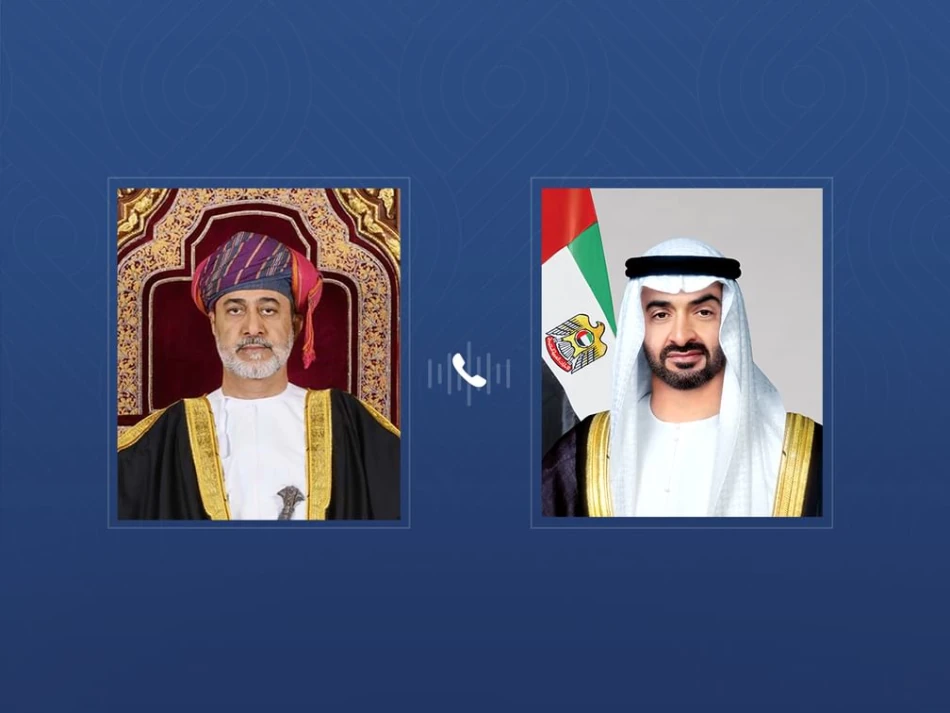
UAE President and Oman Sultan Discuss Bilateral Ties and Regional Developments in Telephone Call
UAE and Oman Leaders Strengthen Regional Partnership Amid Middle East Tensions
UAE President Sheikh Mohamed bin Zayed Al Nahyan and Oman's Sultan Haitham bin Tarik held strategic discussions on bilateral cooperation and regional stability, with particular focus on Palestinian developments and the two-state solution. The high-level diplomatic engagement underscores the Gulf states' coordinated approach to Middle Eastern geopolitics during a period of heightened regional uncertainty.
Bilateral Relations Take Center Stage
The phone conversation between the two leaders emphasized expanding cooperation across multiple sectors, reflecting the deepening economic and strategic ties between the UAE and Oman. This diplomatic engagement comes at a time when Gulf Cooperation Council nations are increasingly coordinating their foreign policy positions and economic strategies.
Both countries have been pursuing diversification strategies under their respective Vision 2030 and Oman Vision 2040 programs, creating natural synergies in sectors ranging from renewable energy to logistics and tourism. The UAE's position as a regional financial hub complements Oman's strategic location controlling access to the Strait of Hormuz, through which roughly 20% of global oil passes.
Palestinian Question Dominates Regional Agenda
Two-State Solution Reaffirmed
The leaders' emphasis on supporting the Palestinian people and maintaining the viability of a two-state solution reflects a broader Gulf diplomatic strategy. This position aligns with recent Arab League statements and represents continuity in regional policy despite the Abraham Accords' normalization framework with Israel.
The timing of these discussions is significant, occurring amid ongoing tensions in Palestinian territories and broader Middle Eastern instability. Both the UAE and Oman have historically positioned themselves as moderate voices in regional conflicts, often serving as diplomatic bridges between competing regional powers.
Strategic Implications for Regional Stability
The coordinated messaging from Abu Dhabi and Muscat signals an attempt to maintain Arab consensus on core regional issues while pursuing pragmatic economic relationships. This approach mirrors strategies employed by other Gulf states seeking to balance competing regional pressures while advancing national development goals.
Oman's traditional neutrality, combined with the UAE's growing diplomatic influence, positions both nations as potential mediators in future regional negotiations. Their joint emphasis on international cooperation for peace suggests continued support for multilateral diplomatic frameworks rather than unilateral approaches to conflict resolution.
Religious and Cultural Diplomacy
The leaders' exchange of greetings for the Prophet Mohammed's birthday demonstrates the continued importance of religious and cultural ties in Gulf diplomacy. Such ceremonial aspects of bilateral relations often provide frameworks for deeper political and economic cooperation, particularly in societies where religious identity remains central to national consciousness.
This cultural dimension of diplomacy becomes increasingly relevant as both nations work to balance modernization initiatives with traditional values, a common challenge across the Gulf region as countries pursue ambitious economic transformation programs.
Most Viewed News

 Sara Khaled
Sara Khaled






